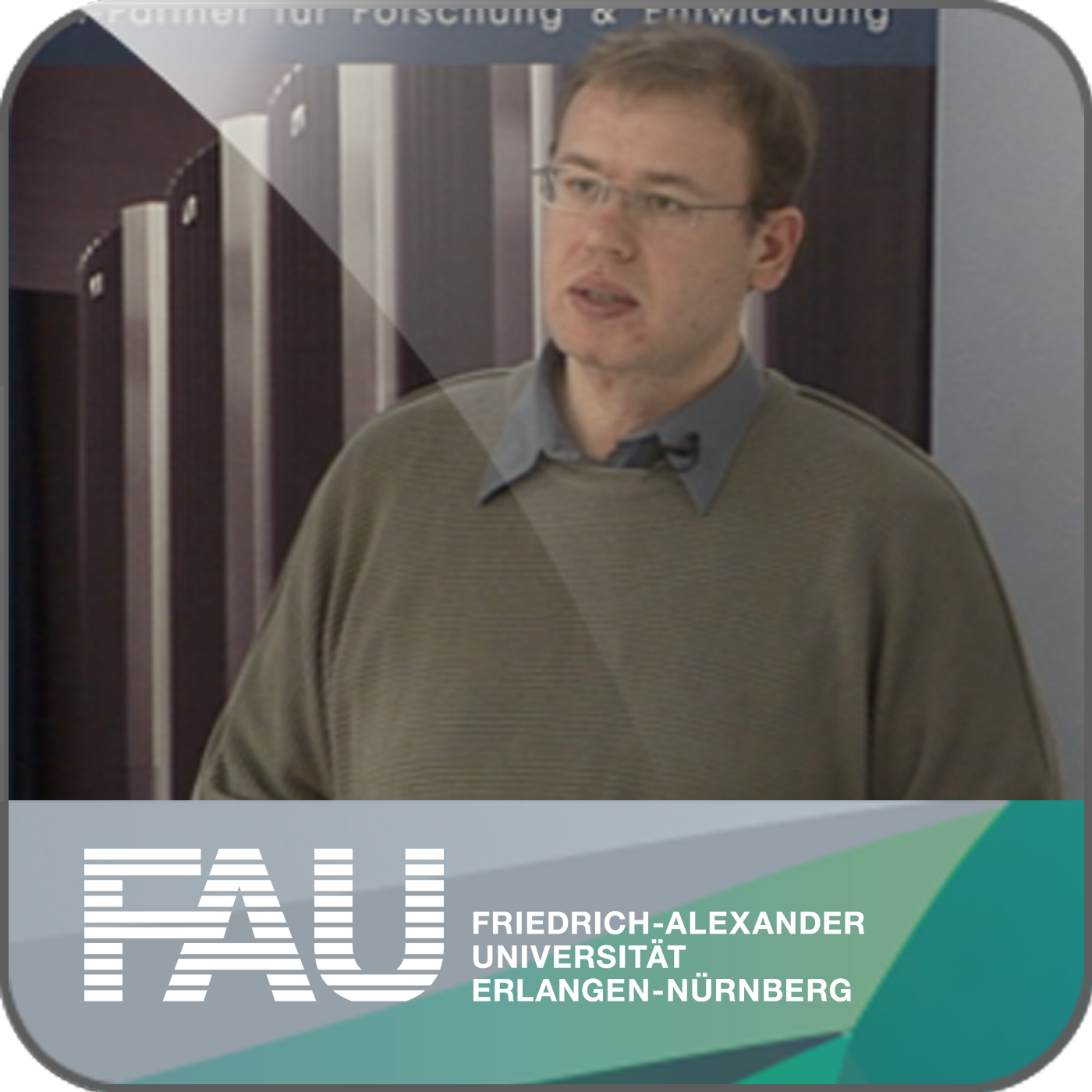Welcome everybody to another episode of Beyond the Patterns.
Today we have a really exciting guest.
It's going to be Niels Thürer from TU Munich and he is working on differentiable physical
simulation.
So I'll tell you there's exciting things coming up today.
You'll see plenty of videos and how to integrate a physical solver differentially into a deep
neural network.
Starting work, Nils Thuray is an associate professor at the Technical University of Munich.
He focuses of course on deep learning methods for physical systems with an emphasis on fluid
flow problems.
Beyond latent space, simulation algorithms and generative models, he is currently especially
interested in learning algorithms powered by differentiable solvers.
So today's presentation will therefore also be entitled Differentiable Physics Simulations
for Deep Learning.
Nils, it's a great pleasure to have you here and the stage is yours.
Thank you for the introduction, Nils.
It's great to be virtually in Erlangen at least.
I studied in Erlangen and did my PhD so I have a lot of good memories and I hope to
be back in person at some point but yeah, this is also nonetheless a very good opportunity.
I want to talk about some of the works that we're busy with in my group and not surprisingly
which I think are a very interesting direction at the moment for research and as you can
see from the title that is Coupling Differentiable Physics Simulations with Deep Learning Algorithms.
Yeah, let me start very broadly.
Why are we interested in this?
We typically looking at physical phenomena that are everywhere around us in our everyday
life.
The air around you in the room you're in that's going into your lungs, you typically don't
see it but if you have something like smoke, you see that typically they're very complicated
motions beneath it.
It's very important for classical questions such as how much lift do we need to keep an
airplane up in the air and interestingly also actually for the glass of water on your desk,
it obeys very similar descriptions typically for liquids, we are in the air, we're looking
at the liquid so it's a two-phase problem, we're looking at the interface but nonetheless
the equations are the underlying physical models are very similar.
In robotics just to give one additional area, there are also all kinds of interesting problems.
This robotic fish is a very good example but all kinds of robots in the practice have to
interact with the flow be it around an autonomous vehicle or some autonomous creatures in the
water.
The point being there are all kinds of applications here although fluids might sound a bit specialized
at first, it's really a very broad topic from chemical reactions over plasma physics, energy
topics to medical ones, it comes up a lot and the underlying physical model which I
have to show here, this is really the basis of everything I'll be dealing with in the
following are the Navier-Stokes equations.
I don't want to go into any additional detail here, it's just that we have classical equations
here they're very established and we can approximate them in the computer.
So in a way, now the interesting question at the moment is given all these exciting
new deep learning algorithms, how do these go into the picture here?
And I want to take a fairly pragmatic standpoint here so these physical models, they are great,
we want to keep them.
And also we have over the course of many decades here very powerful numerical methods to find
Presenters
Zugänglich über
Offener Zugang
Dauer
00:55:37 Min
Aufnahmedatum
2021-07-07
Hochgeladen am
2021-07-07 19:37:04
Sprache
en-US
It’s a great pleasure to welcome FAU Alumnus Nils Thuerey to our lab for an invited presentation!
Abstract:
In this talk, I will focus on the possibilities that arise from recent advances in the area of deep learning for physical simulations. In this context, especially the Navier-Stokes equations represent an interesting and challenging advection-diffusion PDE that poses a variety of challenges for deep learning methods.
In particular, I will focus on differentiable physics solvers within the larger field of differentiable programming. Differentiable solvers are very powerful tools to guide deep learning processes and support finding desirable solutions. The existing numerical methods for efficient solvers can be leveraged within learning tasks to provide crucial information in the form of reliable gradients to update the weights of a neural network. Interestingly, it turns out to be beneficial to combine supervised and physics-based approaches. The former poses a much simpler learning task by providing explicit reference data that is typically pre-computed. Physics-based learning on the other hand can provide gradients for a larger space of states that are only encountered during training runs. Here, differentiable solvers are particularly powerful to, e.g., provide neural networks with feedback about how inferred solutions influence the long-term behavior of a physical model.
I will demonstrate this concept with several examples from learning to reduce numerical errors, over long-term planning and control, to generalization. I will conclude by discussing current limitations and by giving an outlook about promising future directions.
Short Bio: Nils Thuerey is an Associate-Professor at the Technical University of Munich (TUM). He focuses on deep-learning methods for physical systems, with an emphasis on fluid flow problems. Beyond latent-space simulation algorithms and generative models, he’s currently especially interested in learning algorithms powered by differentiable solvers.
References
https://github.com/tum-pbs/PhiFlow
https://ge.in.tum.de/publications/
This video is released under CC BY 4.0. Please feel free to share and reuse.
For reminders to watch the new video follow on Twitter or LinkedIn. Also, join our network for information about talks, videos, and job offers in our Facebook and LinkedIn Groups.
Music Reference:
Damiano Baldoni - Thinking of You (Intro)
Damiano Baldoni - Poenia (Outro)
